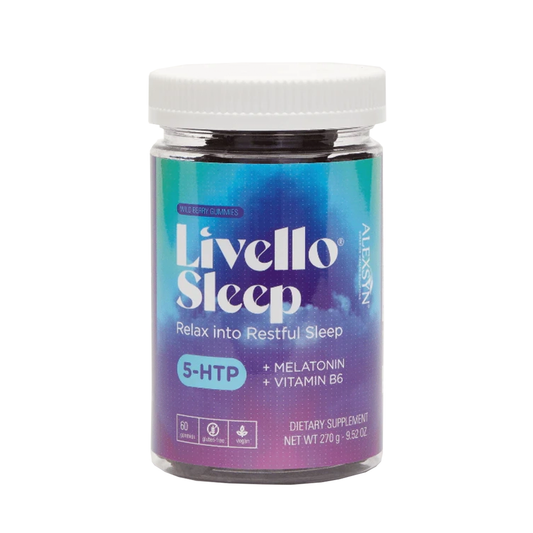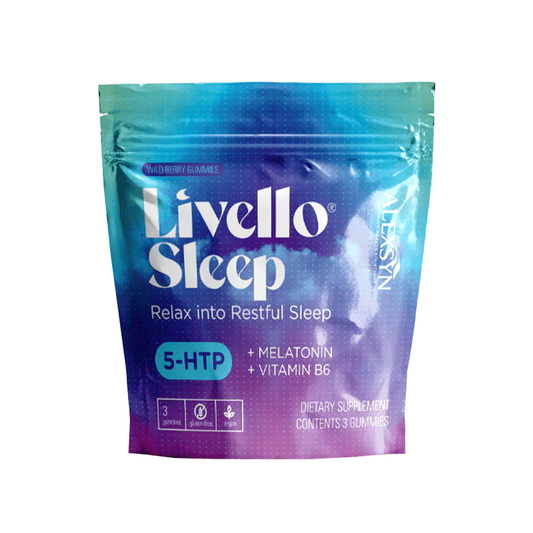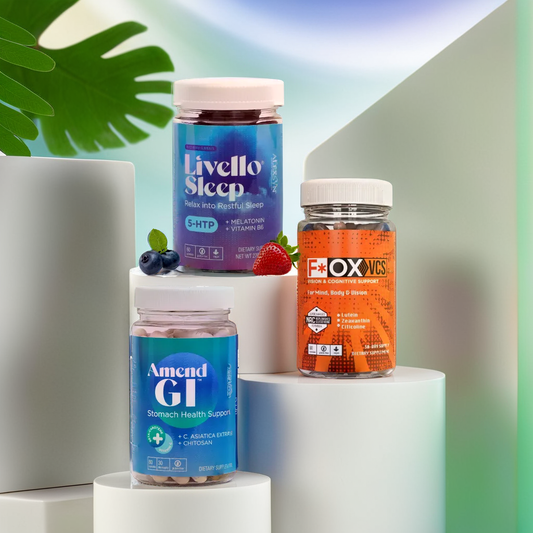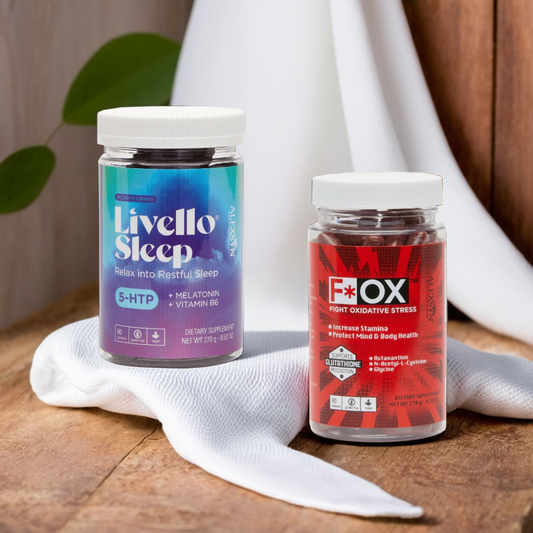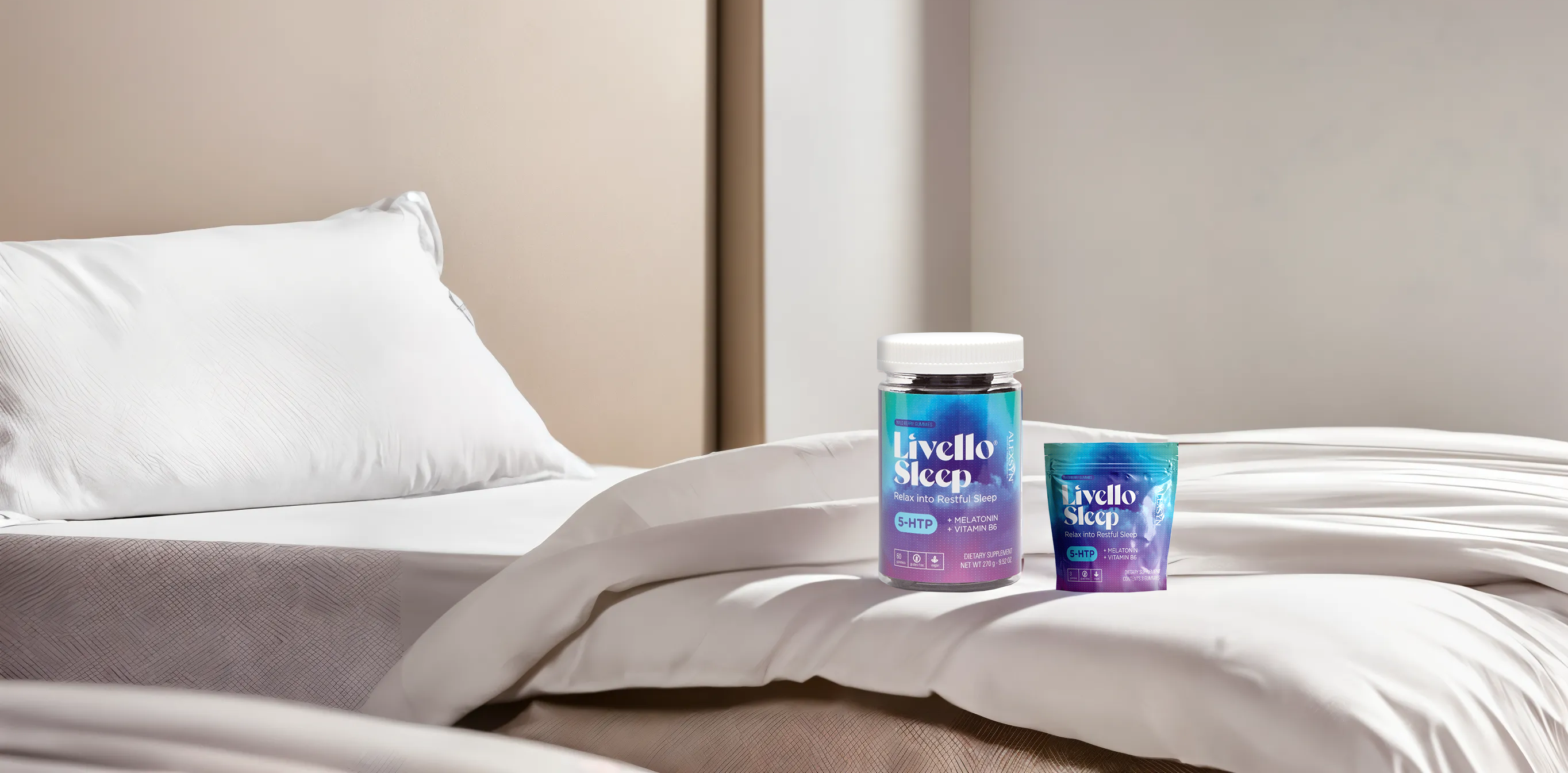
Reasons to Love Livello®
Livello® Sleep contains a proprietary blend of 5-HTP, melatonin, and vitamin B6, designed to lull you into a peaceful, natural sleep that lasts all night long.

Level up your bedtime. Level out with Livello.
Livello® Sleep is something of a unicorn among sleep supplements. What sets Livello® Sleep apart is its key ingredient, a chemical compound called 5-Hydroxytryptophan, or 5-HTP. Livello® Sleep also adds melatonin and vitamin B6 to the mix.
Different from most commercially available sleep supplements, Livello® Sleep contains 5-HTP, which freely crosses the blood-brain barrier to convert to serotonin, the precursor to melatonin.
Pro Tip: Start by enjoying a single gummy, give it 20 or so minutes, and see how you feel. Relaxed? Drowsy? Downright Sleepy? Take it from there. Enjoy as many as 3 gummies per night, but no more than 3 in a 24-hour period.
A little bedtime snack, these yummy wild berry gummies are the quickest way to absorb all the good stuff your Livello® Sleep has to offer. Win-win
The Alexsyn Solution
5-HTP
An amino acid and precursor to serotonin. Serotonin is a mood-regulating hormone, mediating feelings of happiness and calm.
Melatonin
A hormone that regulates sleep. The body naturally converts serotonin to melatonin, complementing those warm fuzzies with comfy, cozy sleepiness.
Vitamin B6
The water-soluble vitamin critical to the 5-HTP-to-serotonin-to-melatonin conversion.
The Livello Collection
-
Livello® Sleep
Regular price $18.99Regular priceUnit price / per -
Livello® Sleep 3-Pack
Regular price $5.99Regular priceUnit price / per -
Total Wellness Trio Bundle
Regular price $53.99Regular priceUnit price / per$59.78Sale price $53.99Sale -
Night and Day Health Bundle
Regular price $44.99Regular priceUnit price / per$48.98Sale price $44.99Sale
